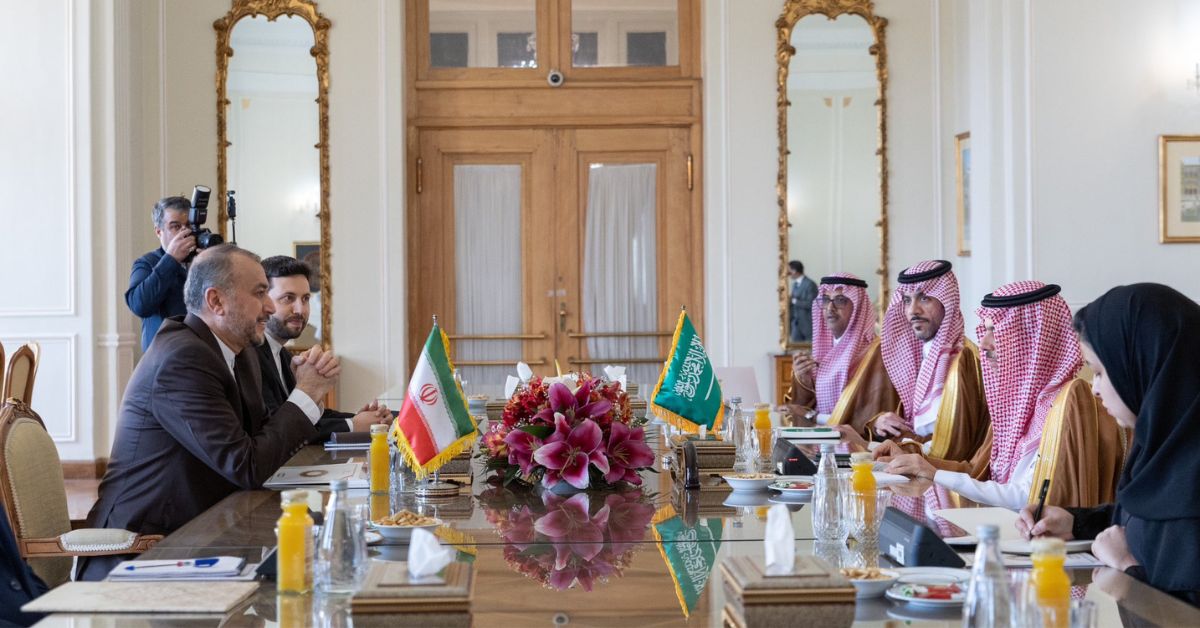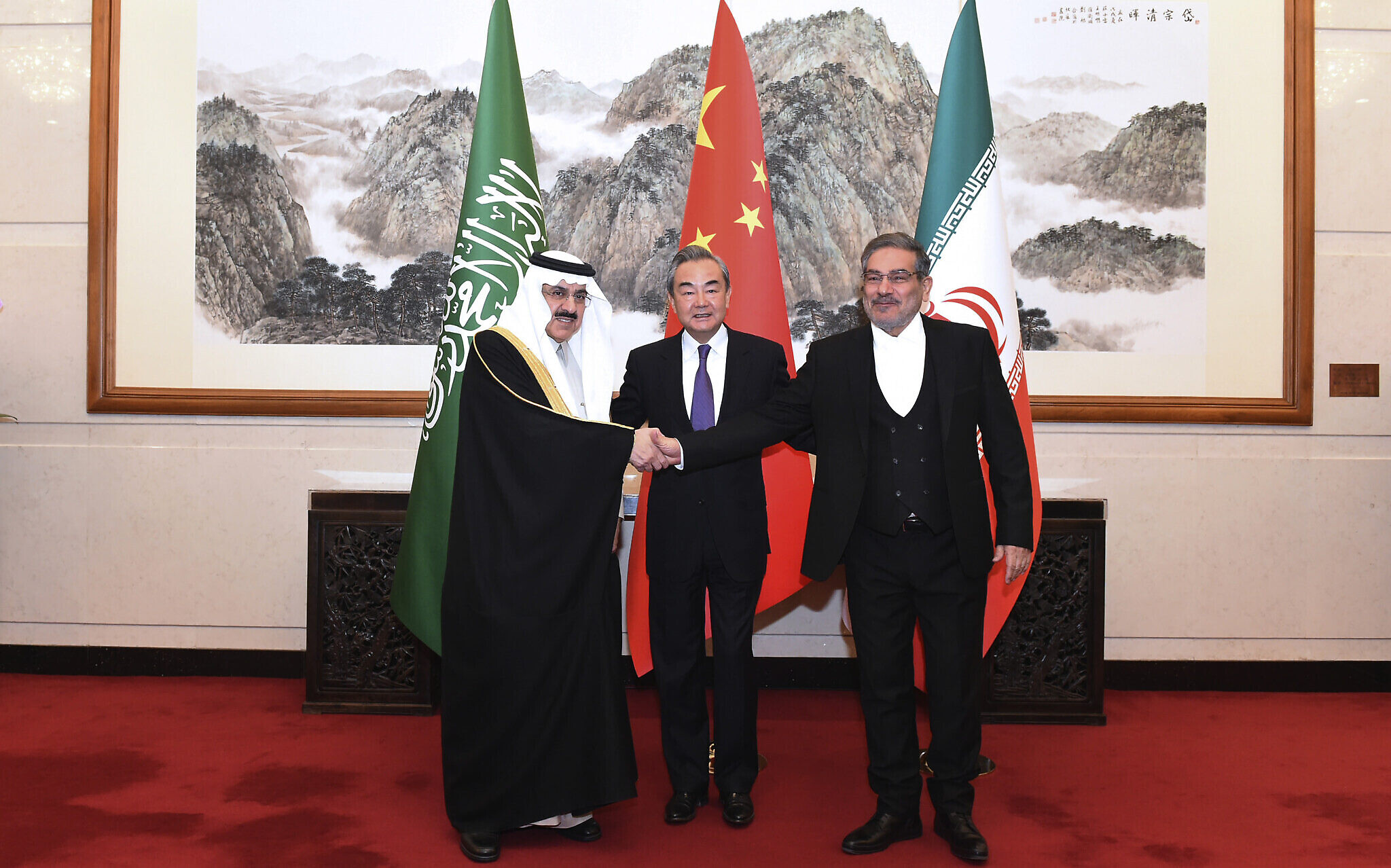Dubai, UAE–The announcement of the resumption of relations between Saudi Arabia and Iran and the settlement of many outstanding issues between the two countries carries many signs. Still, the matter remains dependent on making decisions regarding the renewal of economic and trade relations between the two countries.
The resurrection of ties between the two Middle East powerhouses has sparked global debates from Washington D.C. to Paris and Tokyo. Speculation is rife China is flexing its muscles in the energy-rich Middle East while the United States is backing out from its traditional role as a regional power broker and peacekeeper.
US Secretary of State Antony Blinken was in Beijing a few days back for talks – the first senior-level talks in five years. In an interview published in TRENDS on Tuesday, Blinken spoke about China recent involvement in the Middle East – especially Beijing’s role in the Saudi-Iran deal.
“If China takes initiatives that actually help solve problems and advance peace, that’s a good thing, and we support it,” said Blinken.“They [China] hosted the final round of discussions between Iran and Saudi Arabia that had been going on for two years, and the result was an agreement that at least has the possibility of reducing tensions between them and solving one of the problems, one of the many problems, that Iran poses.”
“If China can play a constructive role in – when the time is right – finding a just and durable peace in Ukraine and ending the Russian aggression, that would be a good thing,” he added.
They [China] hosted the final round of discussions between Iran and Saudi Arabia that had been going on for two years, and the result was an agreement that at least has the possibility of reducing tensions between them and solving one of the problems, one of the many problems, that Iran poses.
US Secretary of State Antony Blinken
Several countries across the world, including the region, welcomed the Saudi-Iran deal and many governments said the deal, if it lasts, will certainly ease tensions and would be good for economic growth.

According to Abdulkhaleq Abdulla, Professor of Political Science at New York University – Abu Dhabi, the Saudi-Iranian reconciliation and Iranian-GCC openness will undoubtedly reduce tensions in the Arabian Gulf. Any reduction in tension and rivalry will benefit regional stability and promote growth and economic prosperity.
“I believe that all countries in the region now want to move away from the political rivalries that have existed for the past ten years and focus on a single issue. Perhaps the only one is growth and the economy, which concerns the Gulf states as well as Iran, especially after the economic sanctions imposed on it and the difficult living and financial situation it is in,” he said to TRENDS, adding that these reconciliations and this shift from hostility to friendship are real indicators that the economic ties will strengthen between Saudi Arabia and Iran, as well as between Iran and the Gulf states.
Data from the Saudi General Authority for Statistics shows that the trade data between Riyadh and Tehran ceased in 2015 and were not updated. The value of trade exchange between Saudi Arabia and Iran back then was US$330 million.
All countries in the region now want to move away from the political rivalries that have existed for the past ten years and focus on a single issue. Perhaps the only one is growth and the economy, which concerns the Gulf states as well as Iran, especially after the economic sanctions imposed on it and the difficult living and financial situation it is in.
Abdulkhaleq Abdulla, Professor of Political Science at New York University – Abu Dhabi
Trade and economic relations between the two countries may allow the return of those dealings that were suspended, in addition to new forms of cooperation, considering the diversification of the Iranian economy and the possibility of Tehran exporting agricultural commodities, and raw materials, such as iron, to meet the needs of Saudi construction projects.
“The most important direct economic outcome of the new normalization is the reduction in geopolitical risk, which has long weighed on everything from shipping insurance to sovereign credit ratings,” says Justin Alexander, an economist specialized on GCC issues.
Do you want to know if the resumption of trade and economic relations between Saudi Arabia and Iran is a new dawn or a false hope? Click here for an in-depth analysis from TRENDS..

